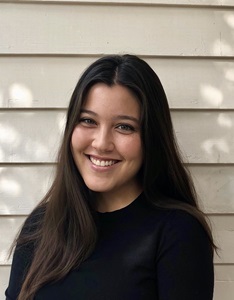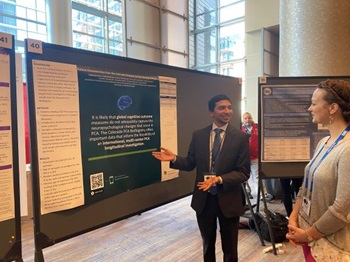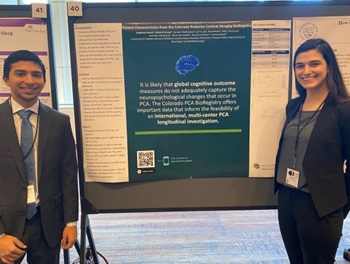PCA Research
Please find below information about clinical trials that the Colorado Posterior Atrophy is involved with, past and present.
We graciously thank you for responding to our email survey regarding research participation. In response, we created a thank you letter that was sent out recently. It is here for reference. Thank you again.
Dear Members,
Thank you for your immediate and impactful responses to our survey regarding a potential observation study. I want to express my gratitude to you for your responses. The information was very helpful to our research team and will contribute to planning for a future study on Posterior Cortical Atrophy.
We learned that the majority of the approximately 30 responses from PCA Colorado Support members indicated that you would be available for a 6-month observational study that involves two visits, including blood draws at each visit. For many others, geographic distance from our campus would interfere with your ability to participate for issues related to travel, including incurred costs. These are important factors for us to understand.
It also occurred to us, particularly in light of comments, that we should also share with you knowledge about research, so I would like to take a moment and provide additional information about research and resources we have available through our webpages.
Research Basics:
First, on the Colorado PCA support web pages, we have information about the basics of research in general and a video recording from a 2021 meeting that also reviews general knowledge about research. You can find this information at this link:
https://medschool.cuanschutz.edu/pca/research/what-is-research
We also provide a list of observational studies that are enrolling people with PCA at the University of Colorado and other sites:
https://medschool.cuanschutz.edu/pca/research/PCA-Research#ac-pca-research-at-cuacc-1
Two Types of Research:
A vital fact to know about research is that there are two major categories: observational and interventional studies. I review these below and in the video that you can find using the link above.
The first type of research to review is the observational research study. This type of study collects data related to symptoms, signs on examination, cognitive tests, imaging tests, blood tests, and other relevant information. The goal of observational research is to enhance our understanding of a disease or the risks for the disease or the common signs and symptoms and other important knowledge. There are no treatments associated with this type of research. Importantly, this research is used to design future treatment trials or understand risks and develop policies or standard of care approaches. Observational studies can also yield important sources of information to provide to patients and their families about prognosis and the course of expected changes over time. Thus, they are essential. Of course, they also are time-consuming for participants and slow to yield information (e.g., it can take years to decades before observational studies provide enough data to change the course of treatment or design a treatment trial). The donated time and effort from patients and families is a major contribution to research advances. So, thank you for your contribution in the past and an early thank you for any consideration you are giving to future research studies.
The second type of research is an interventional study that is designed to treat or improve a condition or disease. Interventional studies are often referred to as clinical trials or treatment trials. All interventional studies use some type of intervention and determine whether the intervention is safe or whether the intervention results in an improvement. Unfortunately, PCA is often a diagnosis that excludes participation in treatment trials for conditions that result in dementia because of its unique profile (i.e., PCA signs and symptoms). At the University of Colorado, we want to change that, although it might take a long time before we can. We are inching our way toward this goal, and many of you have contributed to research in a variety of different ways. We are so grateful.
One example of an observational study that has had an enormous impact on Alzheimer’s disease is reviewed below. I tell this story as an example of how long a development can take to eventually make an impact, but how important observation research is to the discovery of tools that allow for treatment trials to take place.
The Amyloid Brain Imaging Research Story: Consider the many observational studies related to amyloid-beta brain imaging that led to dramatic changes in Alzheimer’s disease research and made possible the current Alzheimer’s disease treatment trials that are ongoing today. Back in 2002, researchers at the University of Pittsburgh asked whether an experimental imaging agent could be safely injected into the blood stream and bind to a protein in the brain called amyloid-beta, which is present in high levels in the brains of people with Alzheimer’s disease. Prior to this time, amyloid detection could only happen at autopsy. Over a decade before human studies took place in 2002, researchers had painstakingly designed several radioactive compounds to bind to amyloid in the brain. For the first study in humans, the researchers chose one of the compounds they had developed, and they called it Pittsburgh Compound B. The first person to volunteer for the study and have Pittsburgh Compound B injected before a PET scan of the brain is a true hero to me and to the researchers who published an excerpt from a letter they sent to the first volunteer to express their appreciation as shown here:
We would like to express our deep appreciation to you and your family for your willingness to take part in the recent study conducted by Dr Nordberg…in Uppsala. Because of the confidential nature of your involvement in this research, we will never know your name and will never meet you. However, we do feel sincere gratitude for your participation and would like to try to express that in this letter. … As you know, this study was the first evaluation of a new chemical substance designed to let us observe specific brain changes associated with memory loss. It is only through selfless individuals such as you that medical scientists can push ahead the frontiers of research and make discoveries that will improve the future care of patients like yourself…. We believe the discoveries that began with your PET study on February 14, 2002 will significantly change the way we approach memory loss in the very near future. We hope these changes come in time to be of personal benefit to you, but they will surely have an effect on those who may follow. You should take pride in knowing that you played an important role in allowing these changes to begin. Thank you very much…
This excerpt is copyrighted and should not be used for commercial purposes. Original link and copyright notice at: https://www.ncbi.nlm.nih.gov/pmc/articles/PMC2648817/
We now know that it took many years before we would realize the true impact of Pittsburgh Compound B, which is enormous. We now understand how close PET amyloid imaging matches the level of amyloid plaques in the brain after many autopsies were performed on participants who volunteered for the PET studies. Fast forward to today, 20 years since the first human study, and we are getting closer to having PET amyloid imaging available in the clinics. Without amyloid PET volunteers, pharmaceutical companies and academic centers would never be able to test therapies aimed at amyloid in the manner that we can today. As you likely realize from this story, however, it can take decades before observational studies lead to clinical trials and have an impact on people with the disease. Of course, it can happen faster. Sometimes, all it takes is one breakthrough.
I am hopeful that this story and research information can provide some insight into the enormous impact volunteers have on moving research forward. This is also true for taking the time to answer a survey to help us plan a study and to help us understand the barriers to volunteering.
For this reason, I wanted to thank you and I look forward to continue to support you and provide to you helpful information and resources to you and your family and friends.
In gratitude,
Dr. Victoria Pelak
Professor of Neurology and Ophthalmology
University of Colorado School of Medicine
The NIH and the Alzheimer’s Association is sponsoring an important study that will shape the way we understand, and eventually treat, people who develop symptoms of Alzheimer’s disease between 40 and 64 years of age. Currently, PCA syndrome is underrepresented. I urge you to consider contacting the study group to see if you can participate. Read more about it
HERE
Study Team and how to contact them:
Telephone: 317-963-7436
Email: [email protected]
Eligibility for inclusion is listed below. It is okay if you do not understand these terms because the study team will walk you through eligibility.
Read more about it HERE
Inclusion Criteria
1. Meets NIA-AA criteria for mild cognitive impairment due to Alzheimer’s disease (AD) or probable AD dementia
2. Have a global CDR score ≤ 1.0
3. Have capacity to provide informed consent (IC) or has a legal authorized representative or guardian who provides IC
4. Age between 40-64 years (inclusive) at the time of consent
5. Must have a study partner (informant) who spends a minimum average of at least 10 hours per week with the participant (e.g., family member, significant other, friend, caregiver) who is generally aware of the participants’ daily activities and can provide information about the participant’s cognitive and functional performance. If the participant does not have a study partner who spends 10 face-to-face hours per week, other arrangements for identifying a viable study partner will be granted on a case-by-case basis by the Site PI
6. Willing and able to complete longitudinal study procedures aside from LP which is an optional procedure
7. Not pregnant or lactating. Women must be two years post-menopausal, be surgically sterile, or have a negative pregnancy test prior to each PET scan
8. Fluent in English
—When it Comes to Ending Alzheimer’s Disease, Time is of the Essence
—Longitudinal Early-Onset Alzheimer’s Disease Study (LEADS)
—NIH – National Institute on Aging
In the Department of Neurology, Dr. Pelak leads the efforts for research related to PCA. Currently, we have ongoing studies but we are not currently enrolling new participants. To be considered for future research, please express your interest by calling or emailing using the contact information below. One of our research staff will get back to you to register you to be contacted for future research studies.
Call 303-724-4644 or email [email protected] to express your interest.
2022 Summer Intern:
 Once again, thank you for your donations, which led to the opportunity to award our summer internship to Kathryn Abe-Ridgway, BA. In 2022, Kathryn was a second-year medical student at the University of Colorado School of Medicine, and she worked with our PCA research team in August 2022 to analyze longitudinal data from the Colorado BioPCA Registry study. In addition, she helped to analyze the literature for published data on longitudinal changes in PCA (i.e., longitudinal changes that were published for cognitive assessments, brain MRI, and biomarkers). It was a great experience to have Kate with us during her summer break from CU School of Medicine, and she did terrific work. Kate has a naturally curious and scientific mind, and she learned a lot about PCA during her time with us. The work that was done in the summer of 2022 with Kate led to a manuscript and acceptance of the manuscript to Current Neurology and Neuroscience Reports. The manuscript by Dr. Pelak, Kate, and our Research associate Asher Mahmood was focused on the longitudinal PCA data review, and was published in October 2022:
Once again, thank you for your donations, which led to the opportunity to award our summer internship to Kathryn Abe-Ridgway, BA. In 2022, Kathryn was a second-year medical student at the University of Colorado School of Medicine, and she worked with our PCA research team in August 2022 to analyze longitudinal data from the Colorado BioPCA Registry study. In addition, she helped to analyze the literature for published data on longitudinal changes in PCA (i.e., longitudinal changes that were published for cognitive assessments, brain MRI, and biomarkers). It was a great experience to have Kate with us during her summer break from CU School of Medicine, and she did terrific work. Kate has a naturally curious and scientific mind, and she learned a lot about PCA during her time with us. The work that was done in the summer of 2022 with Kate led to a manuscript and acceptance of the manuscript to Current Neurology and Neuroscience Reports. The manuscript by Dr. Pelak, Kate, and our Research associate Asher Mahmood was focused on the longitudinal PCA data review, and was published in October 2022:
- Pelak VS, Mahmood A, Abe-Ridgway K. Perspectives and a Systematic Scoping Review on Longitudinal Profiles of Posterior Cortical Atrophy Syndrome. Curr Neurol Neurosci Rep. 2022;22(11):803-812. doi:10.1007/s11910-022-01238-y
Dr. Pelak stated that “What we learned by analyzing the literature is that there is a lot of work to be done to understand changes that occur in PCA over time and to determine what the best tools are to measure these changes. We must understand this before we can move closer to a clinical trial for PCA.” Congratulations Kate on a terrific summer internship.
2019 Summer Interns:
Because of your generous donations, we were able to hire two interns for the summer of 2019. In July 2019 we launched our Summer Internship Program for PCA Research and we received a large number of spectacular applications. We awarded the internship to two CU medical students, Stephanie Serva and Vishal Krishnan. They attended a support group meeting, visited with patients outside of clinics, and collected and analyzed data for the Colorado PCA BioBank and Registry study. They submitted an abstract to the International Neuropsychological Society 2020 Annual Meeting titled “Patient Characteristics from the Colorado Posterior Cortical Atrophy BioRegistry” and their abstract was accepted. They presented their findings in early 2020.


2019 Summer PCA Research Interns, Stephanie Serva and Vishal Krishnan, presented their work on PCA at the International Neuropsychological Society Meeting in February 2020 with great success.
CMS Login